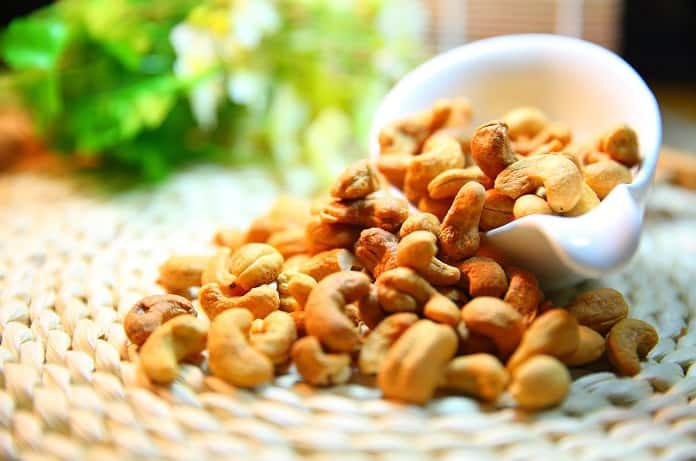Are cashews good for your heart?
Researchers have investigated the link between eating cashews and heart health.
Some research studies suggest that nut consumption may reduce the risk of cardiovascular disease.
Cashews are high in heart-healthy monounsaturated fatty acids and polyunsaturated fatty acids.
Cashews may lower cholesterol levels
One study investigated the effects of eating cashews on cholesterol levels. The study reported total cholesterol and LDL cholesterol were reduced in participants who ate cashews each day.
In this study, cashews were substituted for a high-carbohydrate snack in a standard American diet.
The effects on cardiovascular disease risk
Growing evidence suggests that the replacement of refined grains with healthy fats, such as those found in cashews and other nuts, may have beneficial effects on HDL cholesterol levels and heart health.
A recent study on the effects of cashew nuts on cardiovascular risk factors
A recent study investigated the effects of cashew nuts on cardiovascular risk factors, with a focus on those with type 2 diabetes.
The results were recently published in the Journal of Nutrition.
The participants in this parallel-arm, randomized controlled trial ranged in age from 30 to 65 years old and were previously diagnosed with type 2 diabetes within the last ten years.
The participants were randomized to either the intervention group – 30g of unsalted, raw cashew nuts per day for twelve weeks – or the control group.
The participants in the intervention group were advised to consume the cashew nuts either as a mid-morning or evening snack, all while maintaining their prescribed standard diabetic diet, exercise, and medication as usual.
Additionally, they were instructed not to use the cashew nuts as a cooking ingredient, as roasting or frying the nuts may change their raw properties.
The patients were also not to consume any nuts other than the allotted quantity of cashew nuts.
Finally, participants were taught to substitute the calories from their 30 g cashew nuts in place of the equivalent calories of carbohydrates.
Cashew nuts lowered blood pressure and raised good cholesterol levels
The results showed that the participants in the cashew nuts intervention group showed a greater decrease in systolic blood pressure than their counterparts in the control group.
Not only that but a greater increase in plasma HDL cholesterol (also known as the “good” cholesterol) was observed in the intervention group.
Despite this, no differences between the groups were reported with respect to changes in body weight, body mass index (BMI), blood lipid, and glycemic variables.
Disproving a common misconception
What is interesting to note is that the significantly greater caloric intake in the intervention group was not paralleled by an increase in body weight, BMI, or waist circumference.
This disproves a common misconception that eating nuts may cause weight gain due to their high fat and caloric content.
These results suggest that moderate consumption of cashew nuts will not cause weight gain; on the contrary, it can even lower blood pressure and increase levels of heart-healthy HDL cholesterol.
However, the researchers point out that the results may have been different had the participants ingested higher amounts of cashew nuts.
They suggest conducting further studies in order to analyze whether the effects of nut consumption on glycemia, lipids, and other heart health risk factors are dependent on the number of cashews eaten.
The researchers also suggest more rigorous biochemical analytical procedures in order to figure out the exact mechanisms that may have produced these results.
The current research suggests that adding cashew nuts in moderation to a healthy diet could help improve heart health.
Written by Rebecca Yu
References:
Mah E, Schulz JA, Kaden VN, Lawless AL, Rotor J, Mantilla LB, Liska DJ. Cashew consumption reduces total and LDL cholesterol: a randomized, crossover, controlled-feeding trial. Am J Clin Nutr. 2017 May;105(5):1070-1078. doi: 10.3945/ajcn.116.150037. Epub 2017 Mar 29. PMID: 28356271.
Mohan, V., Gayathri, R., Jaacks, L. M., Lakshmipriya, N., Anjana, R. M., Spiegelman, D., … & Gopinath, V. (2018). Cashew Nut Consumption Increases HDL Cholesterol and Reduces Systolic Blood Pressure in Asian Indians with Type 2 Diabetes: A 12-Week Randomized Controlled Trial. The Journal of Nutrition, 148(1), 63-69.
Image by sunnysun0804 from Pixabay



